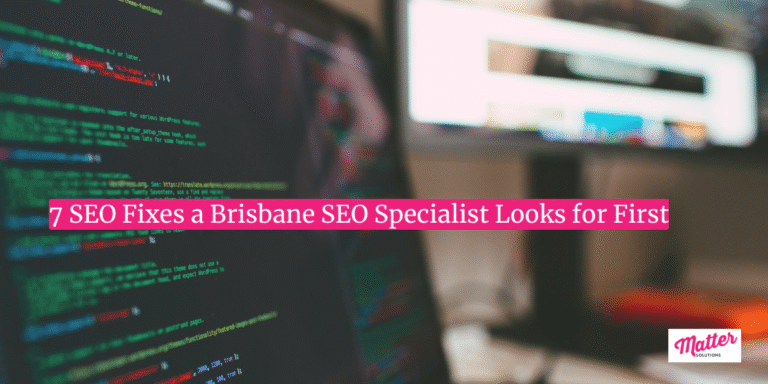AI for Marketing: Transforming Strategies in the Digital Age
In today’s fast-paced digital world, businesses are constantly looking for innovative ways to connect with their audience, optimize campaigns, and drive results. Artificial intelligence (AI) has emerged as a game-changing technology, reshaping how marketing teams operate. By leveraging AI for marketing, companies can gain deeper insights into customer behaviour, automate repetitive tasks, and deliver personalised experiences at scale.
This article explores the concept of AI in marketing, its benefits, applications, and future potential, highlighting why AI is becoming an essential tool for modern marketers.
What is AI for Marketing?
AI for marketing refers to the application of artificial intelligence technologies to plan, execute, and optimise marketing campaigns. It involves using machine learning, natural language processing, predictive analytics, and other AI tools to understand customer needs, automate processes, and improve decision-making.
Unlike traditional marketing methods, AI can process vast amounts of data in real time, identify patterns, and generate actionable insights. This allows marketers to move from guesswork to data-driven strategies, creating more effective and efficient campaigns.
Why AI is Essential in Modern Marketing
The digital landscape has created a massive influx of data, making it challenging for marketers to analyse and act on it manually. AI helps bridge this gap by providing intelligent tools and insights that improve marketing outcomes. Some key reasons AI is essential in marketing include:
1. Enhanced Customer Insights
AI analyses data from multiple sources, including social media, website interactions, and purchase history. By understanding customer behaviour and preferences, businesses can create highly targeted campaigns that resonate with their audience.
2. Personalisation at Scale
Consumers expect personalized experiences across all touchpoints. AI enables marketers to deliver personalised content, product recommendations, and offers based on individual preferences, improving engagement and conversion rates.
3. Automation of Repetitive Tasks
AI automates routine marketing tasks such as email segmentation, social media posting, and ad bidding. This allows teams to focus on strategic initiatives while reducing operational costs and human error.
4. Predictive Analytics
AI predicts future trends and customer behaviour by analysing historical data. This helps marketers make informed decisions about campaign planning, budget allocation, and product launches.
5. Improved ROI
By optimising campaigns through AI insights, businesses can reduce wasted spend, target high-value customers, and achieve better return on investment for their marketing efforts.
Applications of AI in Marketing
AI has a wide range of applications in marketing, revolutionising how businesses engage with their audience.
1. Customer Segmentation
AI analyses customer data to segment audiences based on behaviour, preferences, demographics, and purchase history. This allows for more precise targeting and tailored messaging, improving campaign effectiveness.
2. Predictive Lead Scoring
AI evaluates potential leads and predicts which prospects are most likely to convert. This helps sales and marketing teams prioritise their efforts, increasing efficiency and closing rates.
3. Content Creation and Curation
AI tools can generate content, such as product descriptions, social media posts, and blog articles, while also curating relevant content for specific audience segments. This streamlines content marketing efforts and maintains consistency across channels.
4. Chatbots and Virtual Assistants
AI-powered chatbots provide instant customer support, answer queries, and guide users through the sales funnel. They improve customer experience, increase engagement, and reduce response times.
5. Email Marketing Automation
AI personalises email campaigns by predicting the best time to send emails, selecting relevant content, and optimising subject lines. This increases open rates, click-through rates, and conversions.
6. Ad Targeting and Optimization
AI optimises digital advertising campaigns by analysing performance data and automatically adjusting targeting, bidding, and creative elements. This ensures higher engagement and maximises ad spend efficiency.
7. Sentiment Analysis
AI can analyse social media conversations, reviews, and feedback to gauge public sentiment. Marketers can use this information to adjust messaging, identify emerging trends, and respond proactively to customer concerns.
See also: The Future of Cummins Technology in Singapore: Innovations and Developments
Benefits of Using AI in Marketing
Integrating AI into marketing strategies offers numerous benefits that go beyond operational efficiency.
1. Better Decision-Making
AI provides data-driven insights, enabling marketers to make informed decisions rather than relying on intuition. This reduces risk and improves campaign performance.
2. Higher Customer Engagement
AI personalisation and predictive analytics allow marketers to deliver content that resonates with customers, enhancing engagement and brand loyalty.
3. Cost Savings
Automating repetitive tasks and optimising campaigns with AI reduces operational costs and ensures that marketing budgets are spent effectively.
4. Scalability
AI solutions can handle vast amounts of data, allowing businesses to scale their marketing efforts without sacrificing quality or efficiency.
5. Competitive Advantage
Businesses that leverage AI in marketing gain a strategic edge by understanding customer behaviour, anticipating trends, and optimising campaigns faster than competitors.
Challenges in Implementing AI for Marketing
While AI offers significant advantages, businesses should be aware of potential challenges:
1. Data Quality and Integration
AI relies on accurate and comprehensive data. Poor-quality or fragmented data can reduce the effectiveness of AI models.
2. Technical Expertise
Implementing AI solutions may require specialised knowledge. Marketing teams may need training or support from AI consultants.
3. Ethical Considerations
Using AI in marketing requires careful handling of customer data to ensure privacy, transparency, and compliance with regulations like GDPR.
4. Initial Investment
While AI can save costs in the long term, initial investments in software, infrastructure, and training may be significant.
Future Trends in AI for Marketing
AI continues to evolve, and its applications in marketing are expanding rapidly. Some key trends to watch include:
- Hyper-Personalisation: AI will enable even more tailored experiences using real-time data.
- Voice Search Optimisation: AI will help marketers optimise content for voice-activated searches and digital assistants.
- Visual AI Marketing: Image and video recognition technologies will enhance ad targeting, content analysis, and product recommendations.
- AI-Driven Creativity: AI tools will assist in generating creative ideas, marketing copy, and campaign concepts.
- Predictive Customer Experience: AI will anticipate customer needs before they arise, allowing brands to deliver proactive solutions.
Conclusion
AI for marketing is transforming how businesses connect with their audience, optimise campaigns, and drive growth. From predictive analytics and automation to personalised content and advanced customer segmentation, AI provides marketers with the tools to make data-driven decisions, improve ROI, and enhance customer experiences.
As AI technology continues to advance, businesses that adopt AI-driven marketing strategies will be better positioned to stay competitive, respond to market trends, and deliver personalised experiences at scale. Incorporating AI into marketing is no longer optional—it is a necessity for companies looking to thrive in the digital era.






